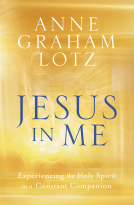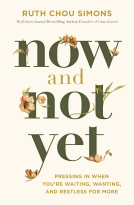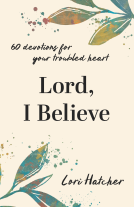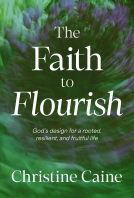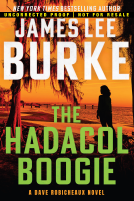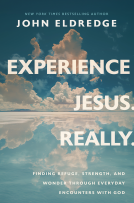Please wait... This may take a moment.
The Faith of William Shakespeare
This title was previously available on NetGalley and is now archived.
Pub Date
Apr 01 2017
| Archive Date
Oct 27 2017
Description
William Shakespeare is arguably the world’s most famous writer. His plays and sonnets have been translated into many different languages, and are performed, read and loved the world over. But what of the man himself? What did he believe? Was he a secret Catholic, like his father, prepared to run the risk of being accused of treachery to the Tudor state? Or was he convinced by the new Protestant teaching? Or maybe did he not believe any of it, just saying and doing what was expected of him, in order to get by in a dangerous age? Shakespearean scholar Graham Holderness examines the evidence, both from Shakespeare’s life and his key works.
William Shakespeare is arguably the world’s most famous writer. His plays and sonnets have been translated into many different languages, and are performed, read and loved the world over. But what of...
Description
William Shakespeare is arguably the world’s most famous writer. His plays and sonnets have been translated into many different languages, and are performed, read and loved the world over. But what of the man himself? What did he believe? Was he a secret Catholic, like his father, prepared to run the risk of being accused of treachery to the Tudor state? Or was he convinced by the new Protestant teaching? Or maybe did he not believe any of it, just saying and doing what was expected of him, in order to get by in a dangerous age? Shakespearean scholar Graham Holderness examines the evidence, both from Shakespeare’s life and his key works.
A Note From the Publisher
Graham Holderness is a Research Professor in English at the University of Hertfordshire, and a prolific author and critic. He has written over forty books, including drama, poetry and novels, but the majority of his publications are on William Shakespeare.
Graham Holderness is a Research Professor in English at the University of Hertfordshire, and a prolific author and critic. He has written over forty books, including drama, poetry and novels, but...
A Note From the Publisher
Graham Holderness is a Research Professor in English at the University of Hertfordshire, and a prolific author and critic. He has written over forty books, including drama, poetry and novels, but the majority of his publications are on William Shakespeare.
Advance Praise
"Holderness's illuminating account presents Shakespeare as imaginatively engaged Calvinist." ~ Paul Edmondson, The Shakespeare Birthplace Trust, and author of Shakespeare: Ideas in Profile.
"This book is informative, engaging, and forthright in its argument." ~ John D. Cox, DuMez professor of English Emeritus, Hope College
"This is a study that everyone seriously concerned to understand Shakespeare should read." ~ The Revd Professor David Jasper, Professor of Literature and Theology, university of Glasgow
"Holderness offers a deeply informed and well balanced account." ~ Malcolm Guite, Poet and Theologian.
"Holderness's illuminating account presents Shakespeare as imaginatively engaged Calvinist." ~ Paul Edmondson, The Shakespeare Birthplace Trust, and author of Shakespeare: Ideas in Profile.
"This book...
Advance Praise
"Holderness's illuminating account presents Shakespeare as imaginatively engaged Calvinist." ~ Paul Edmondson, The Shakespeare Birthplace Trust, and author of Shakespeare: Ideas in Profile.
"This book is informative, engaging, and forthright in its argument." ~ John D. Cox, DuMez professor of English Emeritus, Hope College
"This is a study that everyone seriously concerned to understand Shakespeare should read." ~ The Revd Professor David Jasper, Professor of Literature and Theology, university of Glasgow
"Holderness offers a deeply informed and well balanced account." ~ Malcolm Guite, Poet and Theologian.
Available Editions
| EDITION |
Paperback |
| ISBN |
9780745968919 |
| PRICE |
£8.99 (GBP)
|
| PAGES |
240
|
Additional Information
Available Editions
| EDITION |
Paperback |
| ISBN |
9780745968919 |
| PRICE |
£8.99 (GBP)
|
| PAGES |
240
|
Average rating from 5 members
Featured Reviews
 Carla W, Reviewer
Carla W, Reviewer
3 stars
3 stars
3 stars
3 stars
3 stars
I tried and tried and tried to finish this book. I've had it for a looooong time. I think I thought this was a fictional story when I first requested it. I made it about 25% through before I couldn't read anymore. This book is not in my wheelhouse so I wouldn't count this as a negative review. I don't generally read non-fiction and was trying to challenge myself to broaden my horizons. This one just didn't do it for me.
3 stars
3 stars
3 stars
3 stars
3 stars
 Anouska L, Reviewer
Anouska L, Reviewer
5 stars
5 stars
5 stars
5 stars
5 stars
The Faith of William Shakespeare sets out to prove that William Shakespeare, far from the Catholic or atheist current criticism would have him be, lived his life as a Protestant. Holderness acknowledges that the plays are a poor route to knowledge of Shakespeare’s life, but they are also the only evidence really available. He combines his understanding of the plays with extensive knowledge of historical context in an attempt to illuminate Shakespeare’s personal faith.
While The Faith of William Shakespeare deals with complex ideas, it is very accessible. The book assumes the reader does not have an in depth knowledge of either the religious context or the plays themselves. The introductory chapter on the English Reformation is particularly good, and I enjoyed his analysis of King Lear and genre. Holderness’s analysis looks at each play as a whole, and focuses on philosophical and linguistic echoes in scripture.
Often his readings are broadly “Christian” rather than specifically Protestant (or Anglican, or Calvinist), which sadly works against his “Shakespeare is a Protestant” argument. However, just because I did not end the book convinced that Shakespeare or his plays were Protestant, does not mean this was not an enlightening and interesting exploration of one of the key issues in Shakespeare criticism.
5 stars
5 stars
5 stars
5 stars
5 stars
Readers who liked this book also liked:
If I Run
Terri Blackstock
General Fiction (Adult), Mystery & Thrillers
Jesus in Me
Anne Graham Lotz
Christian, Religion & Spirituality
Don't Look Back
Christine Caine
Christian, Nonfiction (Adult), Religion & Spirituality
Never Give Up
Max Lucado
Christian, Religion & Spirituality, Self-Help
Detour
Jeff Rake; Rob Hart
General Fiction (Adult), Mystery & Thrillers, Sci Fi & Fantasy
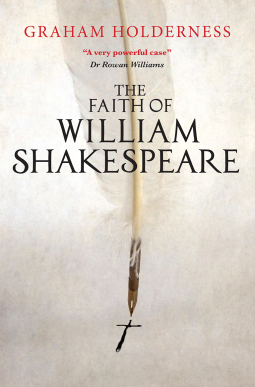
 Carla W, Reviewer
Carla W, Reviewer
 Anouska L, Reviewer
Anouska L, Reviewer


